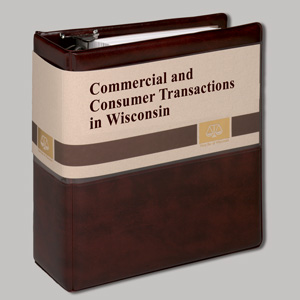
The world of commercial contract negotiation and processing is in a transformative shift due to the fusion of game-changing legal technology and global work processes. The dynamic developments in this field offer exciting opportunities for corporate counsel and law firms to augment their traditional practices through innovative new tools and the increasing globalization of their service offerings. Nowhere is this more apparent than in the legal functions of large multinational companies, where the processing of legal agreements has changed dramatically in recent years. These companies, which often negotiate and monitor tens of thousands of agreements per year in the course of normal business processes, have been early adopters of technology and international legal outsourcing as a way to substantially lower costs and better cover the global nature of their business operations.
The Legal Technology Revolution
While ChatGPT and its artificial intelligence (AI) siblings have captured many of the headlines through previously unthinkable feats, such as GPT-4 passing the Uniform Bar Exam (at the 90% percentile),1 the technologies that affect legal activities are far more diverse and, in many cases, have been in use for quite a few years. The company that makes DocuSign, for example, was founded in 2003. Improvements to legal technology over the last decade, hastened by the need for better solutions to continue business operations during the global pandemic, dramatically widened the adoption of technology tools such as electronic signatures, cloud-based document storage, and solutions for remote workers.
 Kirk H. Samson, U.W. 1997, MBA, is a senior director in the Chicago-area office of the global consulting firm Nexdigm. He is a member of the State Bar of Wisconsin’s Nonresident Lawyers Division. He thanks Monica Riederer, Vice President – Digital & Enterprise Operations Counsel at Northwestern Mutual, for her invaluable assistance in developing this article.
Kirk H. Samson, U.W. 1997, MBA, is a senior director in the Chicago-area office of the global consulting firm Nexdigm. He is a member of the State Bar of Wisconsin’s Nonresident Lawyers Division. He thanks Monica Riederer, Vice President – Digital & Enterprise Operations Counsel at Northwestern Mutual, for her invaluable assistance in developing this article.
Northwestern Mutual is one of many companies that accelerated the shift to electronic signatures and cloud-based storage solutions during the pandemic and has continued to embrace them even after its workforce has moved to a more hybrid environment, says Monica Riederer, Vice President - Digital & Enterprise Operations Counsel with Northwestern Mutual. “The pandemic gave us all a unique opportunity to rethink how we were approaching the in-house practice of law and recommit to going paperless. Now that many of us have experienced a much more digital practice, we’re committed to exploring and embracing technologies that can make us more effective and efficient.”
Key pieces of the legal technology revolution are already well accepted in legal practice. Electronic discovery (sometimes referred to as eDiscovery) systems have become widely accepted; the industry is valued at over $11 billion globally2 and will continue to grow. Applications that do document comparison and term comparison on complex documents are invaluable tools for legal offices and have been embraced for years.
Particularly intriguing is how these tools can interact with AI to be faster and offer more thoughtful insights into documents. Companies such as Walmart have worked hard to fully eliminate contract negotiation for lower-complexity agreements by partnering with an AI negotiation software and chatbots that free their procurement staff to focus on higher-end (and higher-value) contracts.3 Pharmaceutical companies are leaning on AI-drive software programs to do initial negotiations for highly complex contracts such as clinical trial agreements. Companies such as Lawgeex, Legal Robot, and Casetext have been building legal text models for years that are now capable of doing mid-level legal work that would have been done by associates in previous decades. More important, they do it at a better price point and free up attorney time to do more challenging tasks.
According to Riederer, “We’ve been exploring generative AI tools that could help drive efficiency in the contract review and negotiation process. While we’ve seen the potential value for less complex contracts, so far they are less effective with more sophisticated contracts. We’ve found that many of these tools do a reasonably good job accurately summarizing contract provisions and identifying gaps, but in order to be truly effective, these tools need to be trained and fine-tuned so they can reflect a company’s individual risk profile and suggest the best alternative language or create an actual redline. At this stage, these tools appear to be best at issue-spotting and conducting an initial review, but there is clearly still a need for the subject-matter expert ‘human-in-the-loop’ to determine how to appropriately address those issues or fill the gaps in a way that is consistent with the company’s individual risk appetite.”
Riederer says, “We’ve also been experimenting in a very limited and controlled way with the use of generative AI through various copilot tools for tasks like summarizing content and helping lawyers be more concise in their writing. While some of what we are seeing is interesting and may have potential, existing AI copilot tools still very much need a human ‘captain’ to do quality control and ensure accuracy.” The regulatory environment is trying to catch up to AI’s potentially incredible breadth of use, but legal technology advancements are already well embedded in contracting processes and legal firms.4
These tools appear to be best at issue-spotting and conducting an initial review, but there is clearly still a need for the subject-matter expert ‘human-in-the-loop’ to determine how to appropriately address those issues or fill the gaps in a way that is consistent with the company’s individual risk appetite.
Key Tools for Large-Scale and Smaller Commercial Contracting
The platforms that companies use to track their contracting processes end-to-end are called contract lifecycle management (CLM) software or contract management systems (CMS). Companies such as Conga, ContractPodAI, Sirion, and Icertis (to name only a few5) provide cloud-based platforms that allow users across the globe to enter, negotiate, and monitor contracts on one system. They provide tremendous efficiency by reducing stove-piping (that is, information isolation) within companies and improving collaboration between legal offices, procurement, finance and billing, and compliance departments within large companies.
With CLM systems, processing of a document is transparent – everyone knows where the document is while it’s being worked on. Companies can ensure that the agreements that they sign are internally consistent and that all obligations in agreements are properly tracked by AI-supported systems that send timely reminders, review agreements for risk or inconsistencies, and constantly learn as each new agreement is added to their pool of available data.
One could argue that these platforms are an attorney’s best friend, for while they provide transparency for other stakeholders in the enterprise (meaning that the stakeholders know whether something is lingering for legal review), they also ensure that business units all have their contracts vetted by a uniform process and that there are no unexpected variances in agreements’ terms and conditions. These systems work well with everything from software as a service (SaaS) agreements to real estate contracts to confidential disclosure agreements and continue to develop and improve. The majority of these platforms now have powerful AI components built in and have integrated word processing systems and CMR tools, such as those developed by Salesforce, so that one never has to leave the platform from the time one enters a request, through negotiation and execution, until the contract is no longer needed and can be deleted (perhaps decades later). Nothing gets lost in the file cabinet, and precedents and agreement negotiation histories are available with one click.
This technology is benefiting smaller businesses and firms as well. Several CLM providers specifically target small and medium-size enterprises with their platforms, and even Microsoft 365 can be used to replicate a substantial portion of the key tools of a contract management system. This field of technology is highly competitive, which has encouraged providers to find reasonably priced entry points for companies of every size to secure a share of the market.
Globalization of Legal Work
These dramatic improvements in how commercial contracting and other legal work can be done through collaborative systems in the cloud not only have allowed for more remote-working options for U.S.-based attorneys but also have accelerated the use of global service centers to support legal processes. If a company’s supplier is in China or South Korea, catching a negotiation partner on the phone from Milwaukee can be a challenge.
Most large multinational companies have offices around the world, and with the technology to provide effective collaborative service support (be it human resources, IT, finance, or legal) now ubiquitous, it has become substantially more effective to create centers of excellence for contract processing. These centers can be strategically located to serve customers or engage with business partners in their time zone (and often in their language), which has led to an explosion of legal service centers outside the U.S. and Europe. In these centers of excellence, attorneys work in tandem with corporate counsel offices at the company’s headquarters to effectively support complex contracting processes.
Commercial contracting attorneys in global service centers know the local regulatory environment and can provide a deep understanding of the relevant culture and best business practices and are equally adept at applying U.S.- or European Union (EU)-centric legal guidance in negotiations, giving companies the chance to leverage this global knowledge base and generally find substantial savings as well. Although there might be restrictions on the use of centers outside the U.S. for certain state or federal contracted services,6 generally companies can leverage global service centers for most contracting work as long as data protection regulations (such as the EU’s General Data Protection Regulation (GDPR) or the California Consumer Privacy Act (CCPA)) are followed properly.
How to Take Advantage of These Changes
Changes in technology and global business practice can be daunting for attorneys to keep up with, but the advantages they present are substantial. As many commentators in the legal technology field have said, AI is not going to take attorneys’ positions, but attorneys who can effectively use AI might be the ones who take their competitors’ clients. Given the continuing concerns regarding automation and issues such as AI hallucination, which is when generative AI creates outputs that are nonsensical or false but are presented as fact, the involvement of an expert human in the loop is going to continue to be crucial to ensure accuracy and appropriateness of any AI-generated output or content.
The effective use of these technology tools allows for global collaboration and improved transparency in the commercial contracting process and can free legal experts to focus on the most interesting and challenging work for which their experience and education are crucial. No slowdown is on the horizon for these transformations. Elevating one’s comfort level with the technology and globalization of legal services will be as important as continuing legal education for attorneys working in the contracting environment. They represent a great opportunity for commercial contracting attorneys to adapt, expand, and provide innovative and comprehensive legal solutions in an increasingly interconnected and fast-paced global business environment.
Also of Interest
Learn More About Assisting Clients with their Commercial Transactions and Contracts

Commercial and Consumer Transactions in Wisconsin, published by State Bar of Wisconsin PINNACLE®, pulls together the in-depth information you need to answer your clients’ important business transaction questions.
Available in print and online through Books UnBound, this book provides analysis of the major concepts within the Uniform Commercial Code, such as transactions for the sale of goods, use of commercial paper and letters of credit, personal property leases, and secure transactions. Additionally, the book includes chapters about developments in contract law, the Wisconsin Consumer Act, business transactions using the internet, and international transactions.
The book’s Wisconsin legal perspective on domestic and international transactions is invaluable, and you’ll come to rely on the essential tools in this comprehensive volume. Real-world scenarios provide possible solutions to the challenges your business clients face and can help you recognize potential issues before they occur. Be prepared to effectively assist your clients and their business transactions with your copy of Commercial and Consumer Transactions in Wisconsin.
For more information and to order, click here.
Endnotes
1 Pablo Arredondo, GPT-4 Passes the Bar Exam: What That Means for Artificial Intelligence Tools in the Legal Profession, Stanford Law School blog, April 19, 2023, https://law.stanford.edu/2023/04/19/gpt-4-passes-the-bar-exam-what-that-means-for-artificial-intelligence-tools-in-the-legal-industry/.
2 eDiscovery Market, Global Forecast to 2027, https://www.marketsandmarkets.com/Market-Reports/e-discovery-market-11881863.html (last visited Jan. 4, 2024).
3 Remko Van Hoek et al., How Walmart Automated Supplier Negotiations, Harvard Bus. Rev. (Nov. 8, 2022), https://hbr.org/2022/11/how-walmart-automated-supplier-negotiations.
4 The Wisconsin Lawyer has published pieces about AI and legal technology on numerous occasions over the last few years. For example, see Christopher Cody Shattuck, ChatGPT Artificial Intelligence: Will It Replace Lawyers and Legal Staff?, 96 Wis. Law. 41 (Feb. 2023).
5 The research firm Gartner provides an annual list of contract life cycle management systems, Contract Life Cycle Management Reviews and Ratings, https://www.gartner.com/reviews/market/contract-life-cycle-management (last visited Jan. 4, 2024).
6 See, for example, Wis. Stat. section 16.705(1r) and certain restrictions on offshore handling of patient data or other sensitive information by federal agencies.
» Cite this article: 97 Wis. Law. 8-12 (February 2024).
